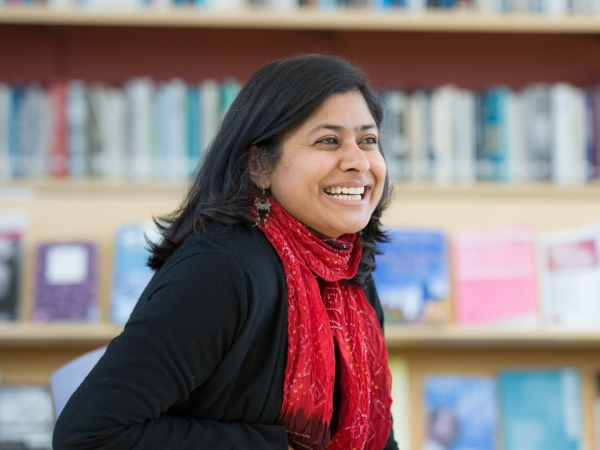EIHS Lecture: Peacetime Aerial Bombing: A Colonial Genealogy for the Ever-Disappearing Civilian
Vazira Zamindar, Brown University (Series: Celebrating 30 Years of the Doctoral Program in Anthropology and History)
Abstract: This talk examines the "peacetime" interwar aerial bombing of Waziristan, and in particular its visual archive, to interrogate a colonial genealogy of “civilian” and her chronic disappearance in some arenas of war. If Paul Virilio considered the complicity of the airplane and the camera in constituting a "military field of perception," it has largely been historically accounted for through the aerial bombing of European cities. Yet such a field of perception was simultaneously forged in colonial landscapes, amidst the expansion of Geneva conventions to address new technologies of war and fierce debates on colonial technologies of rule. In a forensic search for the "civilian" in contingent antiwar and anticolonial solidarities of the time, can one ground the aerial view to a different kind of accountability?
Vazira Fazila-Yacoobali Zamindar is a historian of modern South Asia at Brown University, with an interest in twentieth century histories of decolonization, nation-state formation, displacement, war, resistance and the visual archive. Her book, The Long Partition and the Making of Modern South Asia: Refugees, Boundaries, Histories, was published by Columbia University Press in 2007, the Indian and Pakistani editions of the book came out in 2008, and the Urdu translation in 2014. Stories from the book have also been performed by the Delhi-based, Dastangoi. While minorities, partitions, and refugees remain enduring concerns, she is presently working on a book on the history of archaeology, visual practices and war on the northwest frontier of British India, on the borderlands with Afghanistan, and has received the International Institute of Asian Studies Fellowship, the Fulbright, and the National Endowment for Humanities Fellowship, amongst others, for this project.
Free and open to the public.
This event is part of the Thursday Series of the Eisenberg Institute for Historical Studies. It is made possible by a generous contribution from Kenneth and Frances Aftel Eisenberg.
Vazira Fazila-Yacoobali Zamindar is a historian of modern South Asia at Brown University, with an interest in twentieth century histories of decolonization, nation-state formation, displacement, war, resistance and the visual archive. Her book, The Long Partition and the Making of Modern South Asia: Refugees, Boundaries, Histories, was published by Columbia University Press in 2007, the Indian and Pakistani editions of the book came out in 2008, and the Urdu translation in 2014. Stories from the book have also been performed by the Delhi-based, Dastangoi. While minorities, partitions, and refugees remain enduring concerns, she is presently working on a book on the history of archaeology, visual practices and war on the northwest frontier of British India, on the borderlands with Afghanistan, and has received the International Institute of Asian Studies Fellowship, the Fulbright, and the National Endowment for Humanities Fellowship, amongst others, for this project.
Free and open to the public.
This event is part of the Thursday Series of the Eisenberg Institute for Historical Studies. It is made possible by a generous contribution from Kenneth and Frances Aftel Eisenberg.
| Building: | Tisch Hall |
|---|---|
| Event Type: | Lecture / Discussion |
| Tags: | History |
| Source: | Happening @ Michigan from Eisenberg Institute for Historical Studies, Center for South Asian Studies, Department of History |
The Thursday Series is the core of the institute's scholarly program, hosting distinguished guests who examine methodological, analytical, and theoretical issues in the field of history.
The Friday Series consists mostly of panel-style workshops highlighting U-M graduate students. On occasion, events may include lectures, seminars, or other programs presented by visiting scholars.
The insitute also hosts other historical programming, including lectures, film screenings, author appearances, and similar events aimed at a broader public audience.


